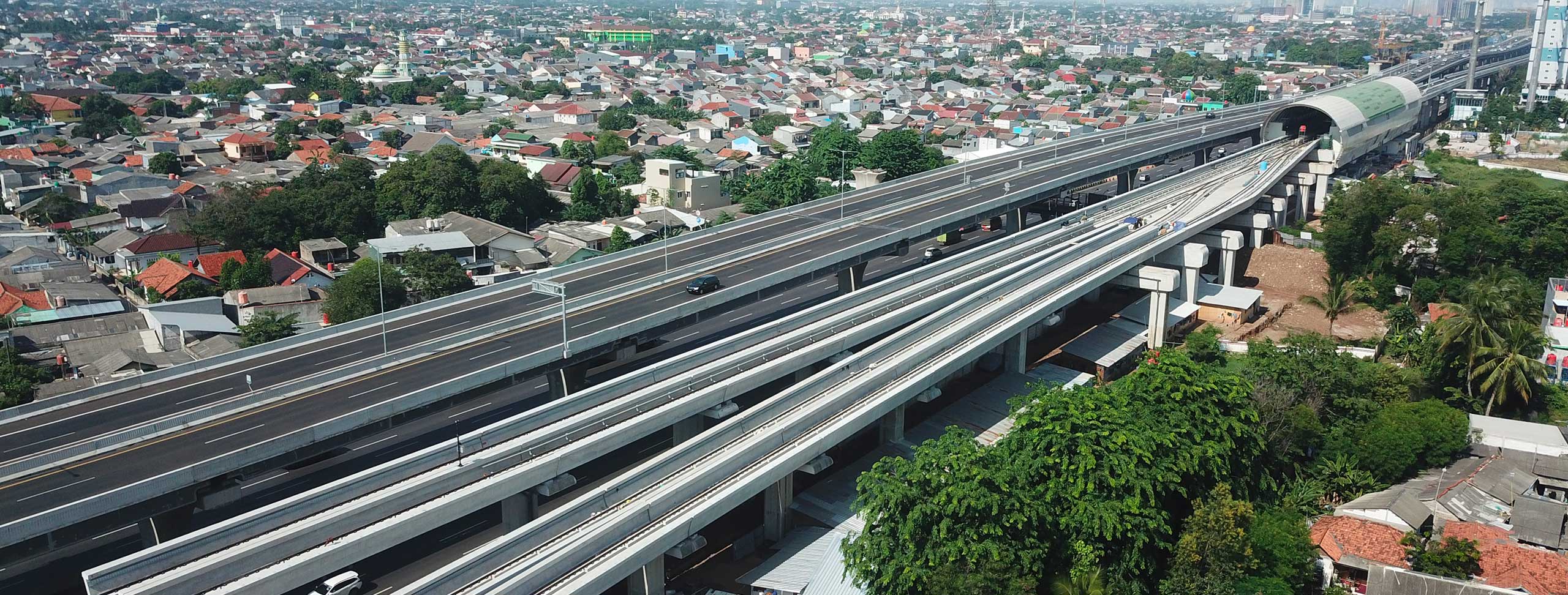
Getting on track in Indonesia
Asia
After winning a contract for the Jabodebek light rail transit project in 2017, Colas Rail set up a branch in Jakarta. It then went ahead to lay 86 kilometers of track, including the conductor rail. Three new metro lines are now slated to go into service as of year-end.
By Laura Franchet
Jakarta is a densely populated city of 10 million people lying on the northwest coast of the island of Java. Part of a sprawling and diverse metropolis with a population of 33 million, it is a city of towering skyscrapers and monstrous traffic jams that leave the “Betawi” (the capital’s residents) trapped behind the wheel for hours each day. In 2015, the Indonesian government launched a program to expand the city’s public transport system to improve the everyday lives of residents… and the quality of the air they breathe.
“At that period, Colas Rail’s know-how was on display in light-rail projects in Malaysia and Vietnam, at Kuala Lumpur and Hanoi,” notes Christophe Chassagnette, major projects director for Cola Rail in Asia. “In September 2017, we were chosen over our Chinese competitor and awarded a design-build contract worth 90 million euros for the tracks on three elevated light-rail lines running on the Jabodebek viaduct in Jakarta.”
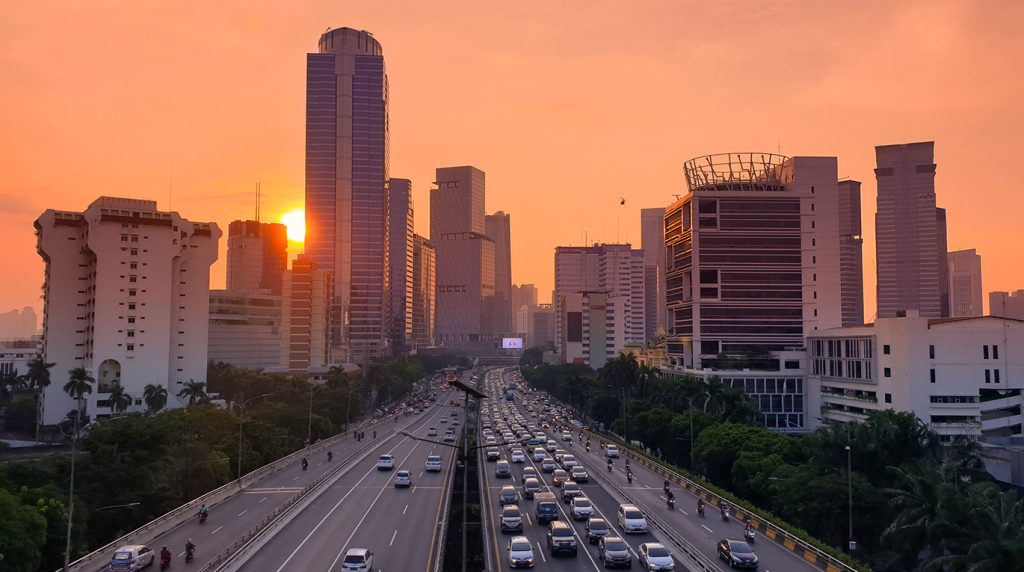
A new company: Colas Rail Indonesia
With work scheduled to get under way just nine months later, Colas Rail was starting from square one in a country where it had no operations. Project director Jean-Jacques Largent had the task of establishing a unit of the Group in a new country, something he had done once before for Bouygues Bâtiment International in Myanmar. “We had to set up the structure, hire people, complete the track design, and get the plans approved, along with a lot of other things.”
To create Colas Rail Indonesia, Largent and his team were able to turn to their local partner, Iroda Mitra, which made some of its offices and other resources available to them. Some 130 management staff and 1,100 site workers were recruited for the project. Most of this workforce came from the island of Java, though some staff were brought from the UK, Malaysia, France, and Chile to deal with the technical challenges involved in the construction of the rail infrastructure. “Through training on the ground in other projects, we’ve developed the railway construction skills of a large number of technicians, engineers, and site managers,” notes Largent.

“With the creation of Colas Rail Indonesia, we are contributing locally to the know-how needed to carry out the ambitious public transport programs planned for the country.”
Major Projects Director Asia, Colas Rail
Safety first
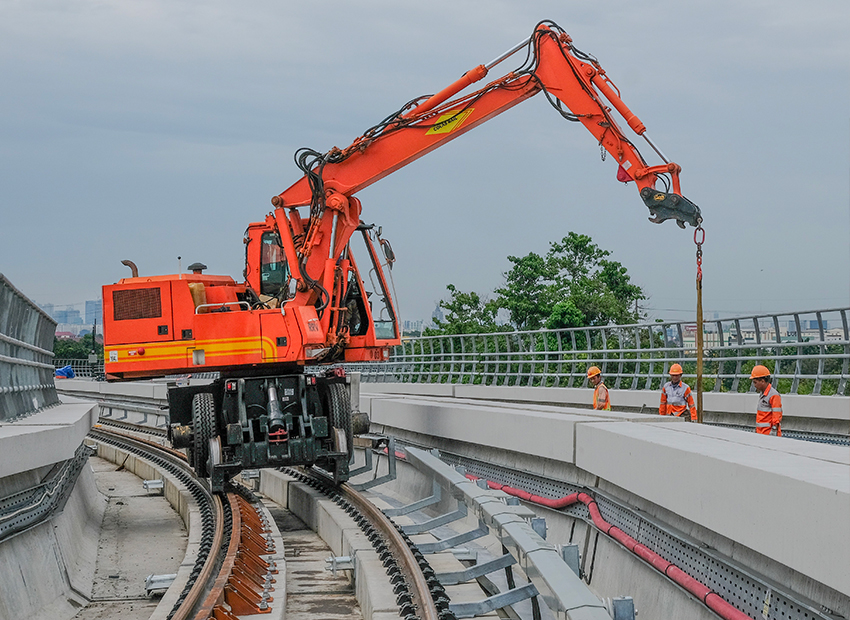
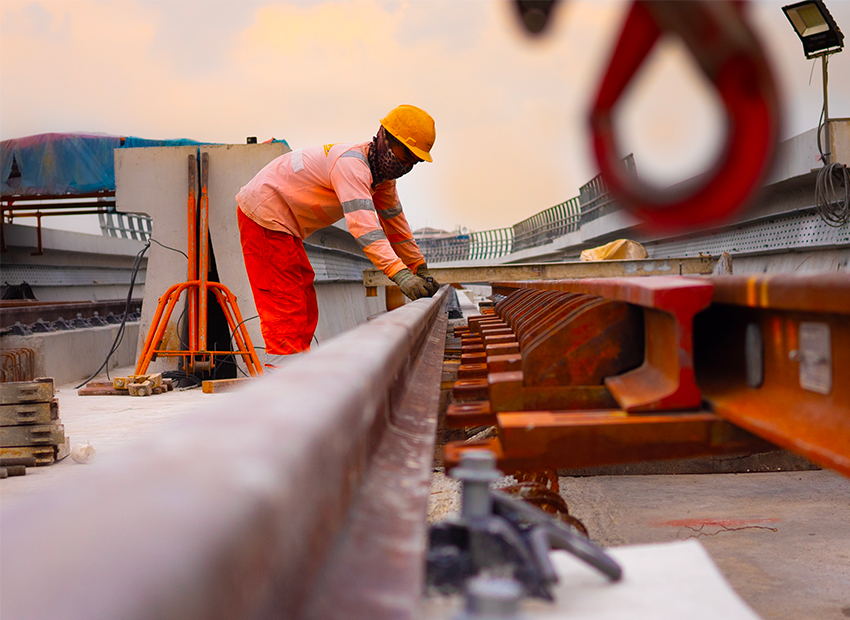
In spring 2020, the entire world was grappling with the Covid-19 pandemic. The Indonesian government’s responses included requiring people to work from home. Colas workers, however, were able to stay on site provided the company’s health guidelines were strictly followed. “With traffic jams no longer clogging the streets in Jakarta, we were able to move materials around more quickly, and logistics were simplified for several months,” recalls Wilfried Ordronneau, project manager at Colas Rail. To keep work progressing at a rapid pace, teams were on the job round the clock, six days a week. Rails were laid, rebar and plank formworks were installed, and concrete was poured at as many as seven locations simultaneously. At the peak of operations, 70 meters of track were laid and concreted each day at each location.
“All the work was being done 20 meters above the ground, on a viaduct constructed by our customer, Adhi Karya, so we added barriers to improve safety at the site,” says works engineer Ugo Pintori. “By strictly applying safety measures, we’ve been able to perform more than one million hours of work without incident.” Colas Rail has also introduced something new to Indonesia in the way of light-rail construction: third-rail technology. This method of collecting current to supply power to the trains is commonly used today in metro systems in place of catenary collection.
1,100
SITE WORKERS
86
KM OF SINGLE TRACK
40,000
M2 OF CONCRETE
4,200
TONS OF STEEL
A new reference in Asia
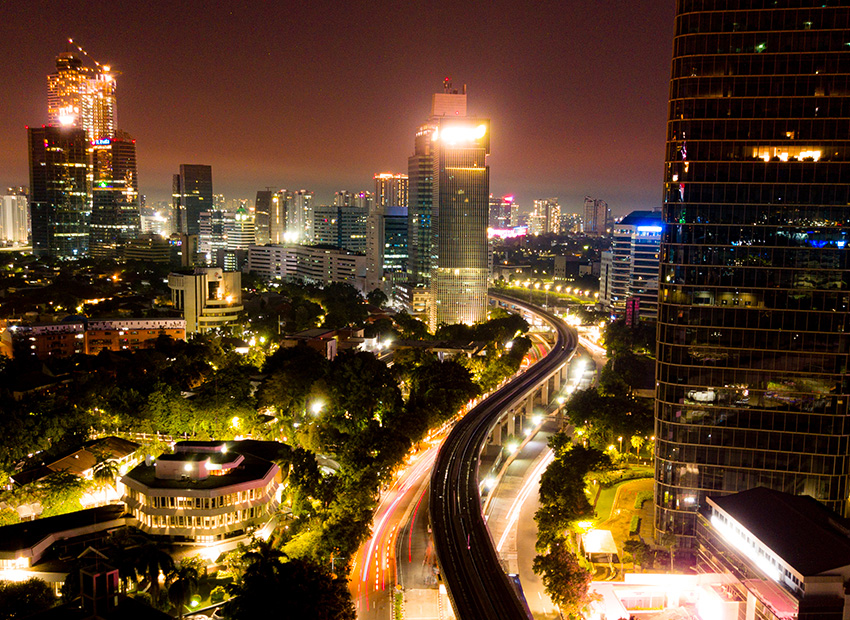
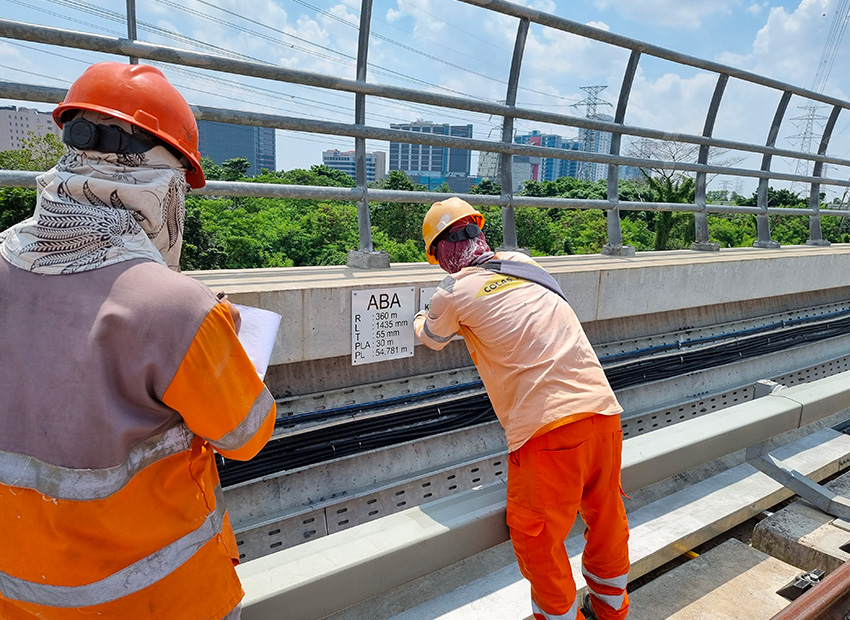
In July 2021, Pinta Natiar took over as head of the project. One of her tasks in the run-up to commercial service, scheduled for the end of this year, is to see that the light-rail lines are operating properly. “This includes assisting the customer during the static and dynamic tests of the trains,” she notes. Carried out on behalf of the semi-public company Adhi Karya, the project is being presented as an example by the country’s transport ministry. “Colas Rail’s services as a contractor have been excellent, notably owing to its rigorous safety policies, its technical expertise, and its capacity to mobilize and train multicultural teams,” adds Natiar.
The company was unknown in Southeast Asia ten years ago, but now it is setting its sights on new business. After this outstanding project in terms of safety and budget control, Colas Rail’s commercial staff is now working on proposals for light-rail extension projects in Jabodebek and in southern Jakarta, at Bogor.
While awaiting these opportunities, Colas Rail has been designated the lead contractor of a consortium that will design and build the railway system of the first underground metro line in Manila, the Philippines – further proof of its outstanding services and competitiveness in the region.